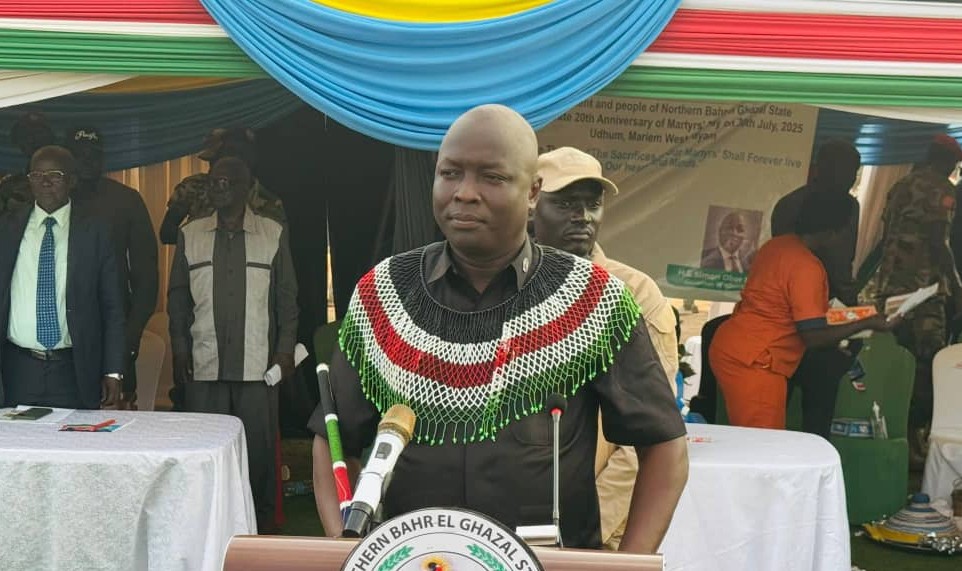
Critics in Northern Bahr el Ghazal are accusing Governor Simon Uber Mawut of wasting public funds on political ceremonies, citing that his constant tours for grassroots events come at the expense of desperately needed public services.
While the governor’s office defends the county-to-county celebrations as vital for connecting with citizens, a section of critics argues the resources spent on convoys and events should be urgently redirected to failing infrastructure and essential services.
The contention follows a pattern of high-profile events held outside the state capital. On Wednesday, Governor Uber celebrated Martyr’s Day, attended by local chiefs, youth, and women’s groups in Aweil West County.
This came after he marked the SPLA’s 16th of May anniversary in Aweil South County and the 9th of July anniversary in Aweil West. Last year, the governor celebrated the Martyr’s Day in Aweil East County.
During Wednesday’s commemoration, Governor Uber asked for patience, emphasizing that his administration recognizes the urgent need for social services like roads, hospitals, and clean drinking water.
“I ask all of you to remain patient with your government as it is doing everything in its capacity to alleviate the living conditions of our people,” Governor Uber appealed.
However, critics contends that these events are the opposite of development.
Angelo Akuoc, a vocal critic of the state government, argued that the governor is misinterpreting the foundational philosophy of the nation’s founder, Dr. John Garang of taking town to the village, clarifying that it doesn’t just mean delivering speeches to grassroots communities.
“It is a waste of resources,” he said “I want to tell you what Dr. John Garang meant by taking the town to the village: that road must be brought to the people, clean water, a school building, and a hospital. It is not to go and visit people and talk with an empty promise,” Akuoc argued.
Tito Awen Bol, a former Northern Bahr el Ghazal Youth Leader echoed the same concern.
While he commended the governor for physically reaching remote communities, he criticized the lack of tangible results.
“I differ with the governor on his performance, but on this particular thing is the only appreciation I’m giving him. When he leaves the leadership later, it will be the only achievement that will be registered as his. So, that is my position,” Awen said.
“There is nothing that we can now point out other than the previous politics of people just going for the media. You just go somewhere and call the media to follow you, pictures are captured, and then you are displayed on the TVs. That was the politics of the previous regime, and it is exactly what is happening now in the state,” he added.
Awen also highlighted that during the events, local community leaders are often not given a platform to voice their challenges directly to the officials.
However, the governor’s office defended the approach. Garang Makuei, the Deputy Press Secretary in the office of the Governor, dismissed the criticism, framing the trips as an essential governance tool.
“The governor has designed this as the way he would interact with the community at the grassroots level. In the events, all social groups are given a chance to air out their challenges for effective delivery of services,” Makuei said.
“So, visiting the grassroots levels is not a waste of resources. The governor is a governor of the people, and he has to visit people at the grassroots level,” he added.

